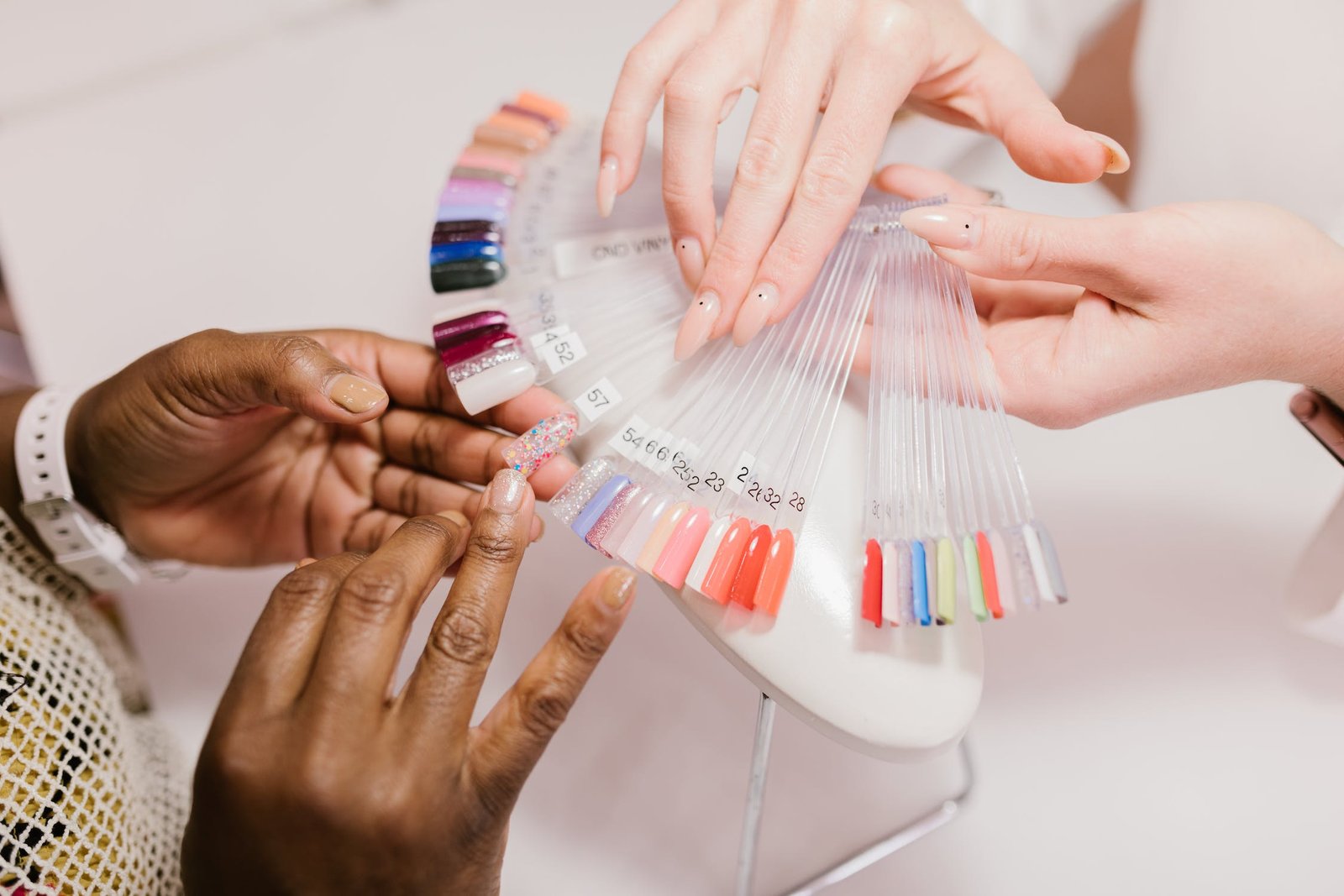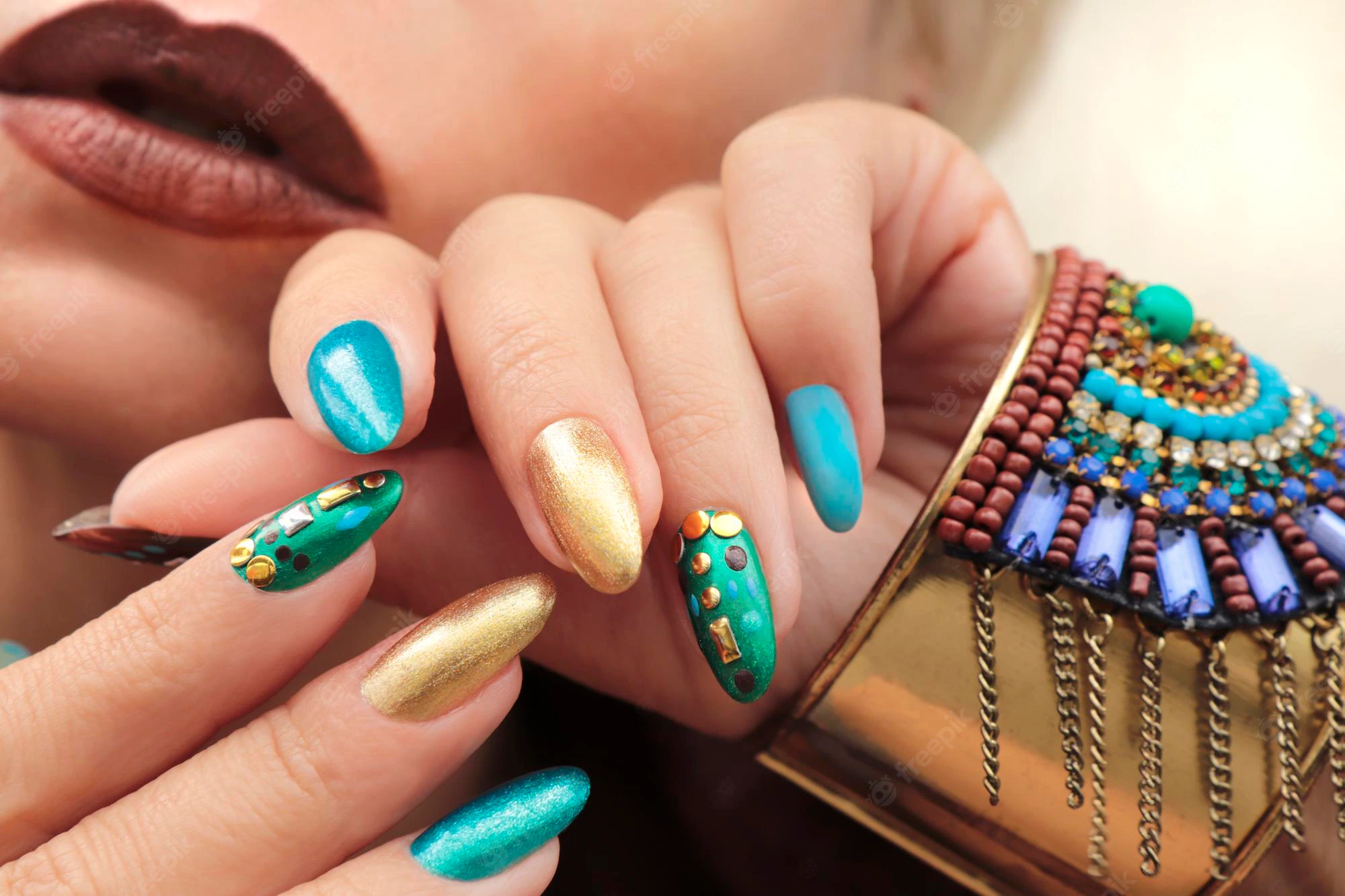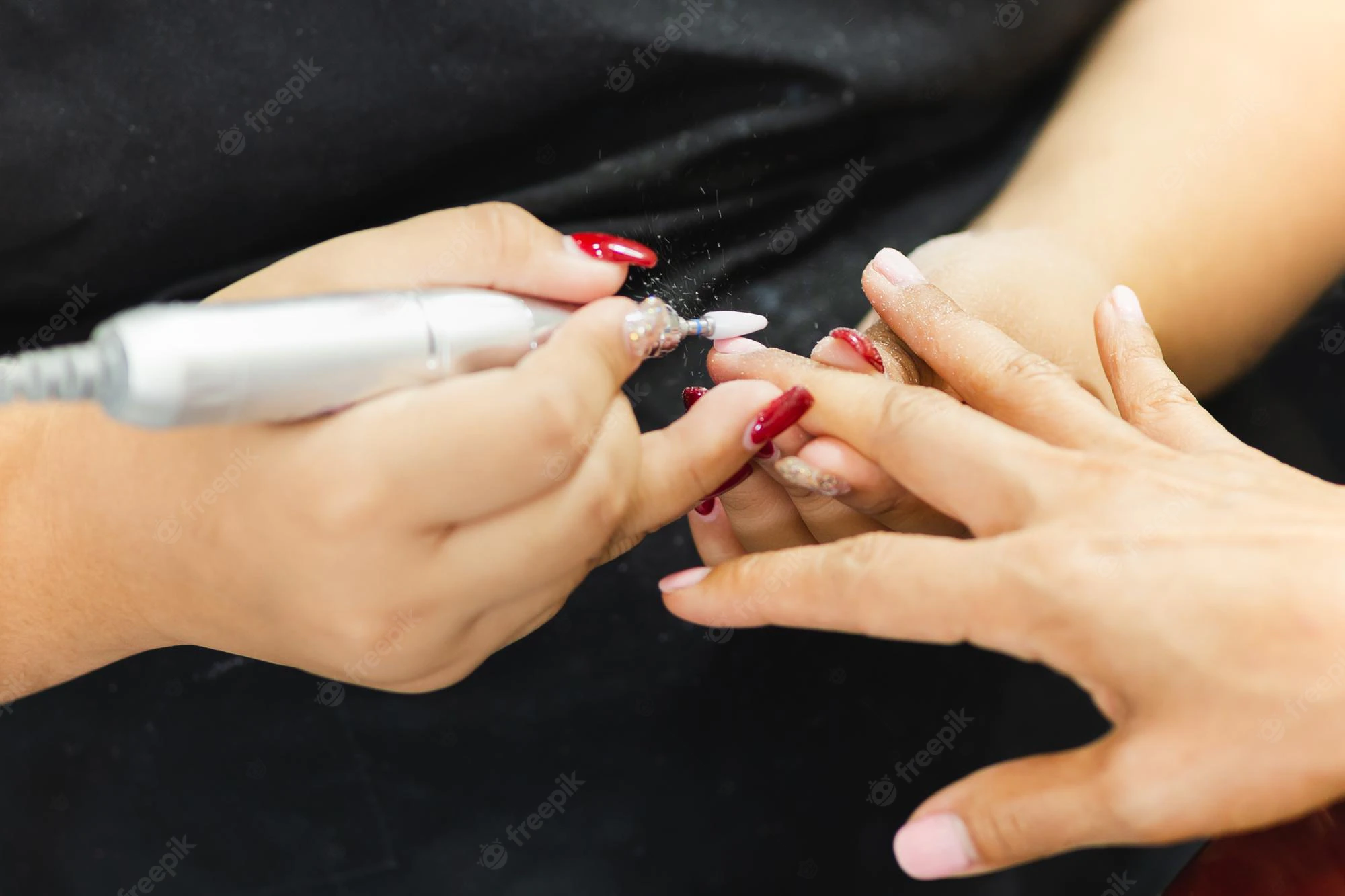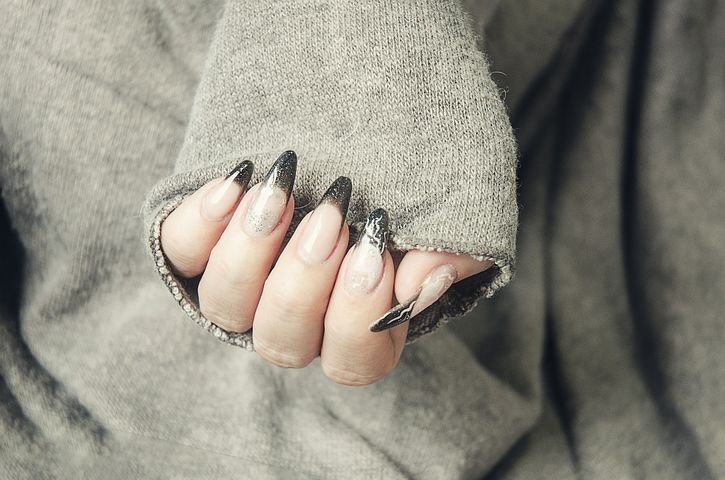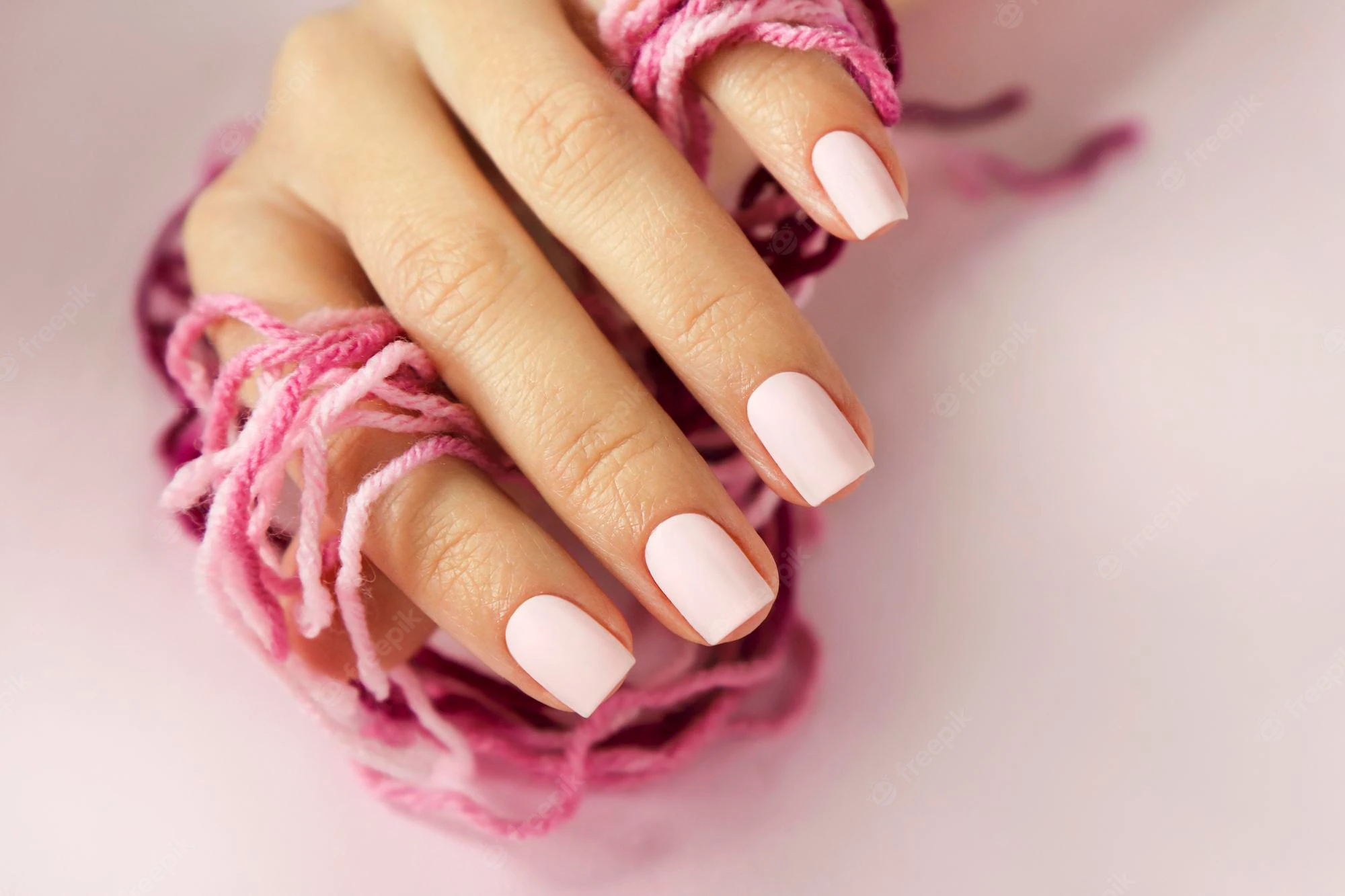When it comes to beauty, let’s be honest- we’re always looking for the quickest and most effective way to achieve the look we want. Acrylic nails seem to be a great idea. It’s a wonder most women want to have them. But, are acrylic nails bad?
Acrylic nails can be damaging to your natural nails if they are not maintained properly. This can lead to unsightly ridges, breakage and as well as discoloration. Another downside is the entire process of getting acrylics done, it can be costly due to the cost of the materials used.
So, if you have ever wanted to get acrylic nails but some how second guess your self, this blog will;
- Highlight the dangers of getting acrylic nails.
- Narrow down the perfect nail alternatives for you that do not pose any health risks.
- Guide you on how to properly maintain your natural nails after getting acrylic nails( Incase you choose to)
Related Reading
- Why Do My Acrylic Nails Keep Popping Off?
- Do Acrylic Nails Ruin Your Natural Nails?
- Do Acrylic Nails Hurt?
Reasons Why Acrylic Nails Are Bad
Acrylic nails are a popular choice for women who want to get their nails done at a salon. But acrylics can be bad for your health and beauty, so make sure you know the risks before you get them done. Here are some reasons why acrylic nails might be bad for you;
1) Acrylic Nails Can Damage Natural Nails


It’s not a secret that acrylic nails are not good for the natural nails, but many women still choose this option, especially when they want to have long and beautiful nails. The main problem with acrylic nails is that the glue used in them contains formaldehyde which is a very dangerous chemical substance.
When it comes into contact with skin or mucosa, it causes irritation and burns, but also allergies and dermatitis. This substance can also cause cancer in people who are exposed to it on a daily basis.
Aside from the formaldehyde, another reason why acrylic nails should be avoided is because they lead to infection of the natural nail plate since bacteria can get under the nail plate through cracks in its surface created by acrylics. This infection leads to discoloration and thickening of the nail plate which eventually leads to its detachment from the nail bed and falling off completely.
2) Acrylic Nails Are Made From chemicals
Acrylic nails are a popular option for many women, but they contain chemicals. When the acrylic is removed, it sometimes cracks and exposes your cuticle to harmful chemicals and making it difficult for your nails to grow back normally. However, the most common way to remove acrylic nails is with acetone, which is used in nail polish remover.
Acetone can cause severe skin irritation and dryness when used on a regular basis as part of your beauty routine( Check out how long you should soak acrylic nails in acetone). It’s also a known carcinogen that can irritate the eyes and lungs if inhaled or absorbed through the skin over time, according to medical news today. You can also damage your nails by using an abrasive file or pumice stone to remove the acrylic from underneath your nails. This can cause cracking or peeling of your natural nail layers and result in unsightly ridges.
3)You Will Have to Get Them Filled and Redone Quite Often
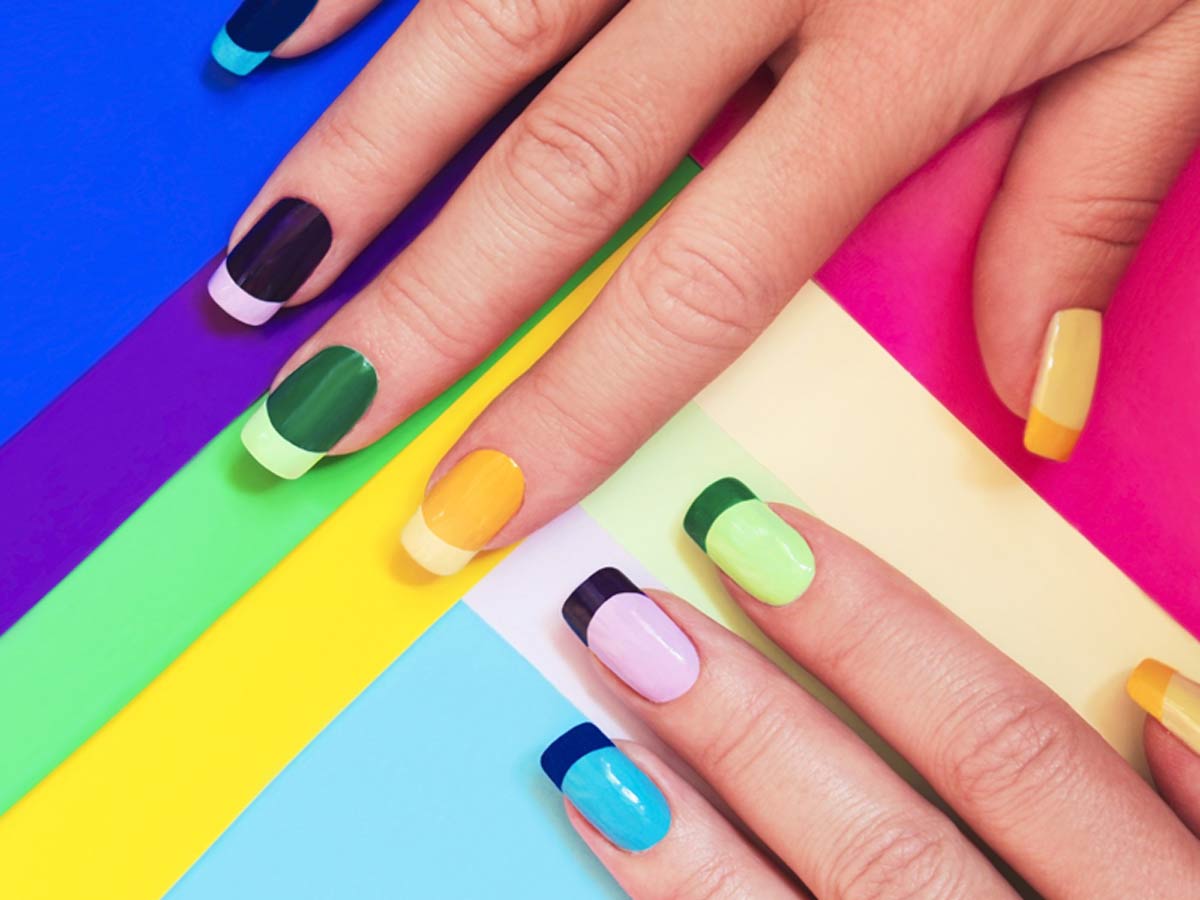

Acrylic nails are a great way to get a manicure that looks amazing and lasts for weeks, but they do require regular maintenance. This is because acrylic nails chip and crack much more easily than natural nails do. They also tend to become warped over time, making them look unnatural and even painful for some people.
If you want your acrylics to last as long as possible, here is what you need to know:
- Do not bite, chew or scratch your nails.
- Do not pick at your cuticles while they are done either – this can cause damage as well as infection if you pick too hard enough (you may also have bacteria under your cuticle that could cause an infection).
- Make sure that you’re careful with them while washing dishes or doing other household tasks (this can be difficult if your job requires you to use your hands). Alternatively, you can wear gloves while doing any house hold chore.
4) Acrylic Nails Can Get You Infections
Cosmetic acrylics are a popular service in salons, and one that can be done safely and effectively. But there are risks involved if the procedure is not performed correctly.
“The biggest risk is infection,” says cosmetic chemist Jim Hammer, who has consulted on numerous television shows, including “Good Morning America.”
Allure
“The most common way that happens is when people get it done at a nail salon,” he says. “A lot of times, they don’t use sterile instruments or clean the skin well enough.” It is better to frequent a nail salon that you trust.
5) The Chemicals in Artificial Nails Are Dangerous for the Environment
Artificial nails, more commonly known as acrylic nails or nail extensions, are a popular trend that has been around for decades. The popularity of artificial nails has exploded in recent years due to the fact that they can be used to create a variety of looks and designs. They’re also inexpensive and easy to apply at home.
But what most people don’t know is that artificial nails could be bad for the environment.
In fact, according to an article in The Huffington Post written by Dr. Sarah Jampel, one of the leading experts on nail health, the chemicals used in artificial nails can be extremely harmful to our environment and our bodies.
The chemicals used to make acrylic nails are known to be bad for the environment. Acetone, a solvent used in the manufacturing process, is extremely toxic and can cause serious health problems if ingested or inhaled. Moreso, acetone is what makes nail polish remover work and acrylics are cured with this chemical, as well as many other solvents. Because they contain these solvents, acrylic nails pose a significant danger to our health.
What Can I Do Instead of Acrylic Nails?
If you have a weak nail bed, or if you’re looking for a less-damaging alternative to acrylic nails, there are plenty of other options out there. Here are some of them:
1.Gel Nails
Gel nails are generally more expensive than acrylics, but they’re also less damaging to your natural nail bed because they don’t require as much product to apply or remove. If you’re concerned about the health of your nails, gel nails may be the better option for you — especially if you’ve had issues with your natural nail plate being damaged by previous acrylic applications.
2.Dip Powder
Dip powders are a great alternative to acrylics because they don’t contain formaldehyde. I personally love the AZUREBEAUTY Clear Dip Powder Nail. This powder is applied over natural nails and allowed to dry. Once it’s dry, it can be buffed and polished like regular nail polish. This is really a good option if you want to avoid nail art altogether but still want something special on your hands!
Tips for Reducing Nail Damage After Getting Acrylic Nails
When getting acrylic nails, it is important to take care of your nails afterwards. There are several things you can do to help prevent damage to your natural nails.
- Avoid using harsh nail polish removers. Acetone based nail polish removers can dry out and damage the cuticles and surrounding skin. These removers also contain chemicals that are not good for the environment and they can be hard on any manicure that you may have gotten in the past.
- Use moisturizing cuticle oil after each manicure or pedicure session to keep your cuticles healthy and hydrated so that your acrylic nails won’t become dry or cracked easily when exposed to water or other elements in your environment.
Are Acrylics Safe if They Contain Formaldehyde?
Acrylic nails are safe if they do not contain formaldehyde or other harmful chemicals that can cause allergies or infections in the body. These ingredients are usually found in lower-quality acrylic nails and may cause rashes or skin irritations when applied directly to the skin around them.
They also tend to be brittle and break easily after application, making them unsuitable for long-term use or high-stress activities such as typing on a keyboard or playing a musical instrument
Frequently Asked Questions
How Long Do Acrylic Nails Last?
Acrylic nails can last anywhere from two weeks to six months, depending on how well you take care of them. If you’re not careful with your hands and feet, the polish will chip off sooner than expected.
Is It Safe for Me to Wear Acrylic Nails?
When properly maintained and cared for, acrylic nails are safe for all ages. However, if you have allergies or sensitive skin, consult your doctor before getting them done to avoid any adverse reactions that could lead to problems later on down the road.
How Bad Are Acrylic Nails for Your Health?
The acrylic nails you get at the salon are made from a mixture of monomers, polishes, solvents and colorants. Many of these ingredients are known to be toxic and can cause health problems if you’re exposed to them for long periods of time.
What Can I Do Instead of Acrylic Nails?
If you want to keep your natural nails strong but still want them to look nice, consider getting gel manicures instead of acrylics. These usually last longer than acrylics and won’t damage your natural nail bed.
Conclusion
Most acrylic nails are safe, but there are important precautions to take, especially for those with health concerns. First of all, get good quality professional acrylics with proper ventilation and use some kind of basecoat (not polish) so that your natural nails don’t start to become damaged. And as a rule, don’t leave them on for too long—most salons recommend anywhere between four and six weeks.
REFERENCES
- The Most Toxic Ingredients in Your Nail Polish—and Safer Formulas to Try Instead
https://www.thehealthy.com/beauty/nail-care/nail-polish-toxic-ingredients/
- We Ask a Derm: Are Acrylic Nails Bad for You?
https://www.purewow.com/beauty/are-acrylic-nails-bad-for-you
- The Beginner’s Guide to Acrylic Nails
https://www.harpersbazaar.com/beauty/nails/a31123254/acrylic-nails-what-to-know/
- What Causes a Fungus to Grow Under Acrylic Nails, and How Do You Treat It?
https://www.healthline.com/health/fingernail-fungus-from-acrylic-nails
- Phthalate and Organophosphate Plasticizers in Nail Polish: Evaluation of Labels and Ingredients
https://www.ncbi.nlm.nih.gov/pmc/articles/PMC6222550/


